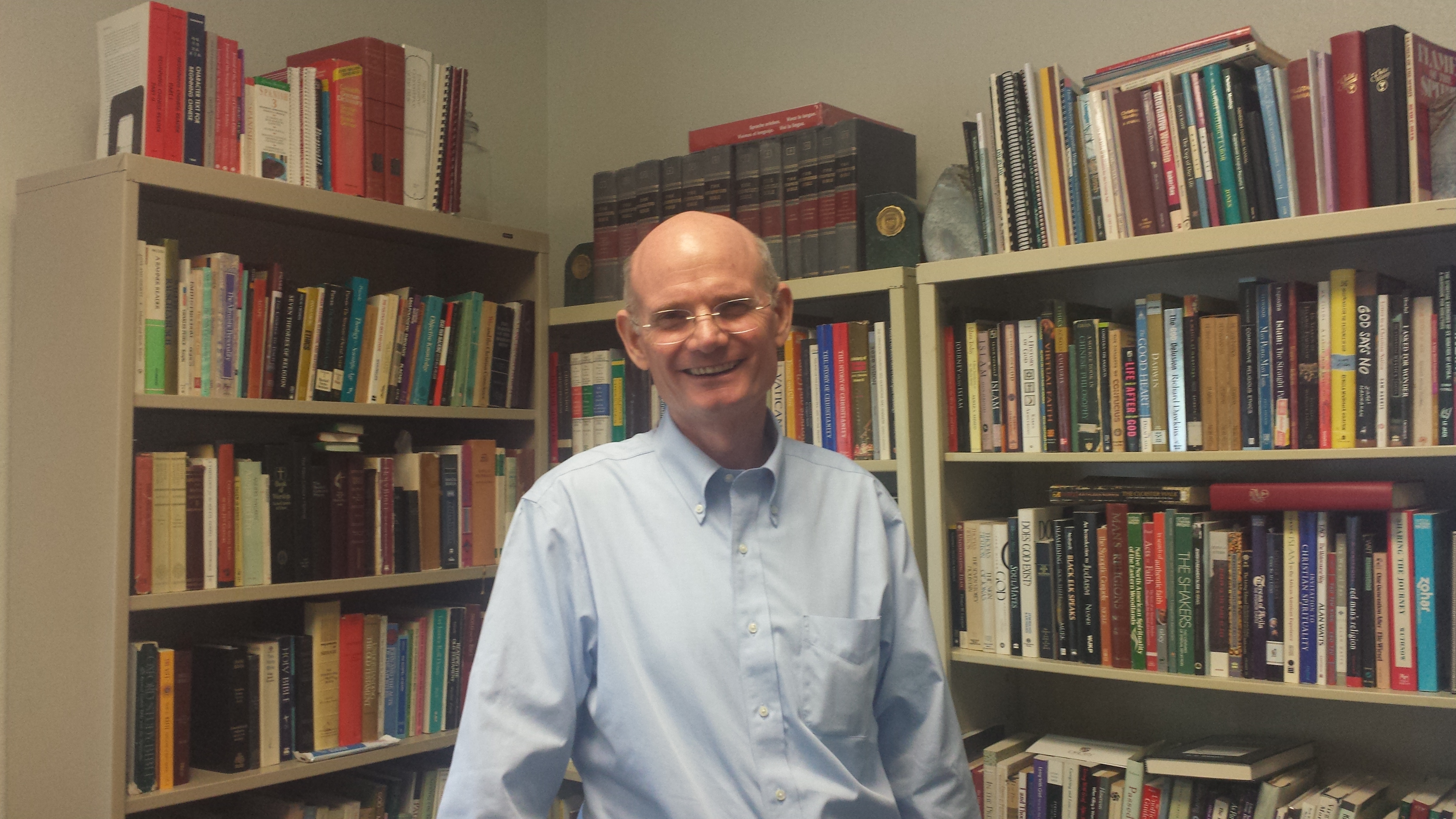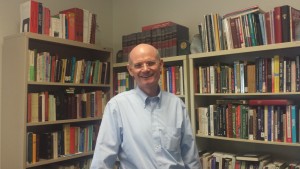

Peter Browning has been a part of the Drury University family for 28 years as a professor of philosophy and religion and as campus chaplain. Browning’s undergraduate degree is in philosophy while his master and doctorate degrees are in divinity. He was ordained in 1984 in the Christian Church. He is on the board of The Hospice Foundation of the Ozarks and is very passionate about serving Drury and the Springfield community to the best of his abilities.
What called you into the ministry?
I became a minister in some respects because I grew up in that world. My father was a professor of Christian education at the Methodist Theological School. I grew up in the church and had a sense that this was my call, pretty early. I remember I was seven or eight and I told my father, as little kids will often do, that I’d like to be a professor and a minister. And the funny thing is I ended up being a professor and a minister, and it’s been a wonderful life and very rewarding.
What would you say is the most important part of being a campus chaplain?
Well, it’s very interesting. I have a mission statement where I’m helping to nurture their spiritual lives, in particular for the Christian community, but the wider community as well. Help people to think more about the transcendent questions. And a big part of my goal is to nurture their leadership, so I want people to come and speak at chapel. I want people to get involved in community service, and also how to lead that service. I try to nurture people’s capacity to think about faith in a more sophisticated manner so that we don’t end up seeing faith at 18, 19, 20, 25 the same way we saw it at 12. Many people leave their religious communities at the very moment things start getting interesting. They’re actually asking questions, they’re actually trying to understand their faith as an adult. My hope is that people will come to Drury and instead of just bracketing more transcendent questions, that they’ll mature, their spiritual lives will mature as opposed to atrophying. This year my goals are the Matthew 25 project and starting up an interfaith project where we start learn about other faith’s traditions and respecting those traditions, and how to be in a dialogue with one another.
Most student ministry groups on our campus are Christian specific, would you like to see more diversity in ministry groups?
I’m a part of a network and a couple years ago I sent two students to the Interfaith Youth Council and they went to a conference with the whole idea of starting an interfaith gathering. Our primary interfaith diversity comes from the international students. So my dream is to create a series where we’re hearing from and connecting with people from those different traditions, as I am deeply committed to an understanding of spirituality that is inclusive. I see in my own Jesus tradition where Jesus was repeatedly reaching out to groups outside of people who were acceptable.
What role do you find spirituality plays in peoples lives, does it affect their daily or is it very casual?
Well, we know on any given Sunday, the overwhelming minority of people who are Christian on this campus are actually in a church. What we know about young people sociologically is that they have not slammed the door on church, they have closed the door very quietly and respectfully. But I know, that everyone thinks about spirituality. What I find talking to people is you can come to Drury, and you can be here for four years and your purpose can be to become a money making machine, or my goal is to be the most popular, or even my goal is to find my life partner, or my goal is to be the most highly esteemed person. What I try to tell people is all those goals are external goals, you can loose all of them, but spirituality is about what you can’t loose.
You’ve been here for 28 years, in all those years would you say the climate towards religion or religious groups has changed a lot?
Yes, we know statistically religious life and attendance has declined markedly. Church growth in America rose til about 1968 and after 1968 there was a decline in mainline Protestantism. In that same time period the evangelical and Pentecostal churches grew. You see that dynamic reflected with colleges, so that you’ll have very active groups. In general you have a divide with a smaller group of students that say, I’m spiritual of course, but I’m also religious. The root of that word means to bind, so be bound in a community; worship, pray, study sacred text. But the larger group of people that has a much more ambiguous uncertain understanding. So there’s a spirituality that’s always pulsing, but I am interested in connecting with everybody. And the biggest connecting for me with people who are spiritual and not religious is in my classes. I teach does God exist and I am heavily connected to that group.
Do you find that college student’s spiritual lives tend to affect their overall health?
I think it does, but it’s harder to track. You’d have to look at the depression rates of people who are in a spiritual community versus people who are not. Research shows that overwhelmingly the people who are the happiest are embedded in community, the least happy people tend to live socially isolated lives. And when it comes to spirituality for me, I think having the spiritual practice of taking a day off once a week, that’s a big deal. And there are many people on this campus who don’t take a day off, or even having the spiritual practice of rest, that you deserve to have 7 or 8 hours of sleep a night. When your living your life and everything’s a struggle and you’re always overwhelmed, maybe you’re not doing what your called to do, and maybe that’s a sign.